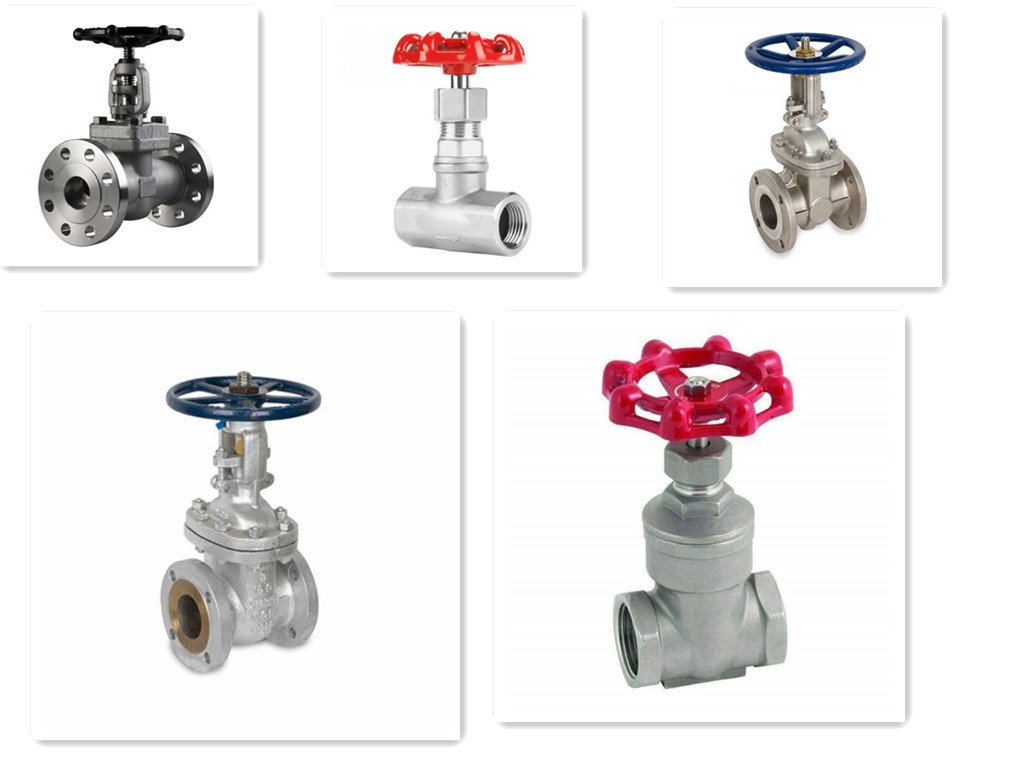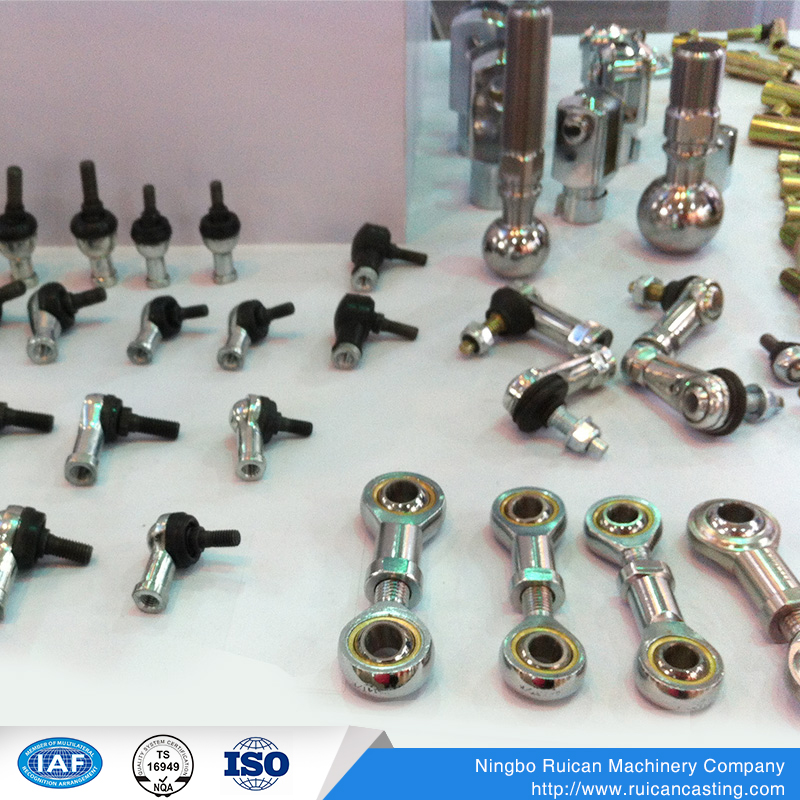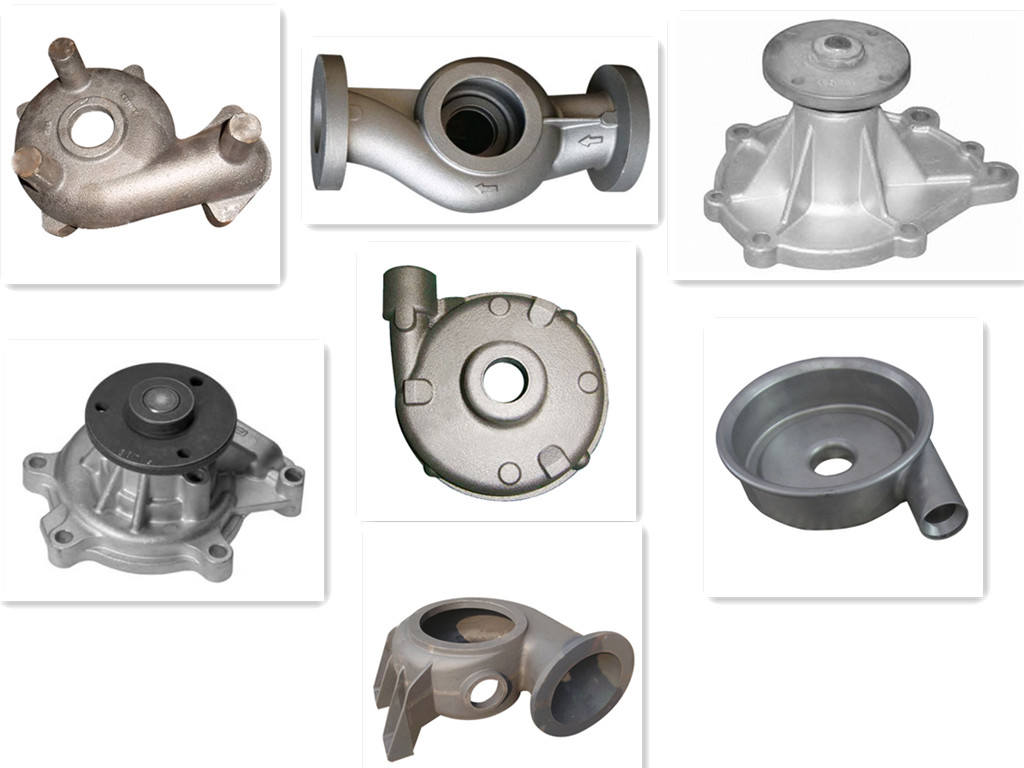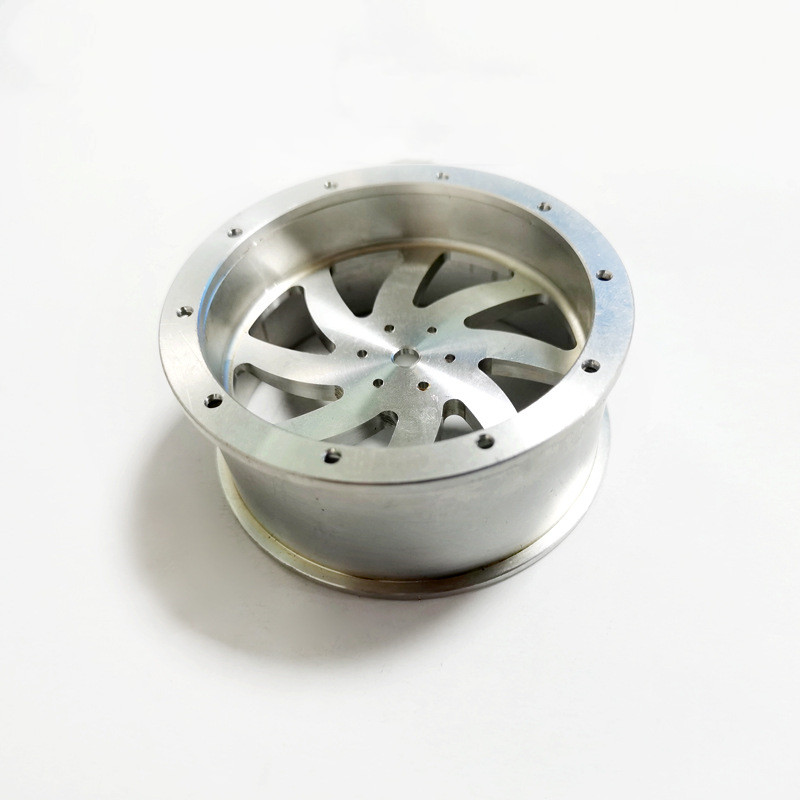In conclusion, metal sand casting hollow bolts and nuts are designed to be durable and provide reliable fastening solutions. The durability depends on factors such as the material used, the design, the application, and the maintenance and care provided. By selecting the appropriate material, optimizing the design, considering the application requirements, and implementing proper maintenance practices, the durability of these components can be maximized, ensuring their long-lasting performance and reliability.
Metal sand casting hollow bolts and nuts are versatile components that find application in various industries. They are widely used for fastening and joining applications that require strength, durability, and reliable performance. Here are some of the main uses and application fields of metal sand casting hollow bolts and nuts:
Automotive Industry: Metal sand casting hollow bolts and nuts are extensively used in the automotive industry. They are employed in engine assemblies, suspension systems, chassis components, and other critical applications that require secure fastening and reliable performance. These components are designed to withstand the vibration, heat, and load demands of automotive environments.
Construction: Hollow bolts and nuts are widely used in the construction industry for structural steelwork, scaffolding, and concrete formwork. They provide strong and secure connections, ensuring the stability and safety of various construction projects. These components are designed to withstand high loads and are available in different sizes and designs to suit specific construction requirements.
Machinery and Equipment: Metal sand casting hollow bolts and nuts are utilized in the assembly of heavy machinery and equipment. They are used to fasten components in industrial machinery, agricultural machinery, mining equipment, and other heavy-duty applications. These components are designed to withstand high loads, resist vibration, and ensure reliable and long-lasting connections.
Marine Industry: Metal sand casting hollow bolts and nuts made from corrosion-resistant materials, such as stainless steel or bronze, are widely used in the marine industry. They are employed in shipbuilding, offshore structures, and other marine applications. These components provide reliable connections that can withstand the harsh and corrosive marine environment.
Electrical Industry: Hollow bolts and nuts are also used in electrical installations. They provide secure fastening solutions for electrical panels, transformers, power transmission equipment, and other electrical components. These components are designed to ensure proper electrical grounding, resist vibration, and maintain reliable connections in electrical systems.
Aerospace Industry: Metal sand casting hollow bolts and nuts are used in the aerospace industry due to their lightweight and high strength-to-weight ratio. They are employed in aircraft assembly, engine components, and other aerospace applications where weight reduction is crucial without compromising strength and durability.
In conclusion, metal sand casting hollow bolts and nuts are versatile components that find application in various industries. They are used in automotive, construction, machinery, marine, electrical, and aerospace industries, among
Others. These components provide reliable and durable fastening solutions, ensuring the stability, safety, and performance of diverse applications.
4. Cause of the faultCause of the Fault in Metal Sand Casting Hollow Bolts and NutsMetal sand casting hollow bolts and nuts are generally reliable and durable components. However, like any other mechanical parts, they may experience faults or failures due to various reasons.
Understanding the causes of these faults is essential to prevent and address them effectively. Here are some common causes of faults in metal sand casting hollow bolts and nuts:
1. Material Defects: One of the primary causes of faults is material defects. If the raw materials used in the production of these components are of poor quality or contain impurities, it can lead to weaknesses, cracks, or brittleness in the bolts and nuts. The presence of internal voids or inclusions can also affect the structural integrity of the components.
2. Improper Design: Faults can also occur due to improper design of the bolts and nuts. If the design does not consider factors such as load distribution, stress concentration, or fatigue resistance, it can lead to premature failure. Inadequate thread engagement, insufficient thread depth, or improper thread pitch can result in weak connections or stripped threads.
3. Incorrect Installation: Faults can be caused by incorrect installation practices. If the bolts and nuts are not tightened to the required torque specifications, it can result in loose connections that are prone to vibrations and loosening over time. Over or under-tightening can also lead to distortion or damage to the components, compromising their performance.
4. Corrosion: Corrosion is a common cause of faults in metal components, especially in marine or corrosive environments. If the bolts and nuts are not made from corrosion-resistant materials or are not adequately protected with coatings or platings, they can be susceptible to rust and degradation. Corrosion weakens the components and can lead to reduced strength or structural failure.
5. Fatigue: Repeated cyclic loading or vibrations can cause fatigue failure in the bolts and nuts. Over time, the cyclic stresses can initiate cracks or fractures in the components, compromising their structural integrity. Factors such as improper design, inadequate material strength, or excessive loads can contribute to fatigue failure.

6. Environmental Factors: Extreme temperatures, moisture, or exposure to chemicals can also contribute to faults in metal sand casting hollow bolts and nuts. Thermal expansion or contraction can cause dimensional changes or stress accumulation, leading to failures. Harsh chemicals can corrode the components, while moisture can promote rust or degradation of the materials. In conclusion, several factors can contribute to faults in metal sand casting hollow bolts and nuts. Material defects, improper design, incorrect installation, corrosion, fatigue, and environmental factors play significant roles in the occurrence of faults. To prevent such faults, it is crucial to use high-quality materials, ensure proper design considerations, follow correct installation procedures, protect against corrosion, and address environmental factors appropriately. Regular inspection, maintenance, and adherence to industry standards can help identify and mitigate potential faults, ensuring the reliability and durability of these components.
5. Troubleshoot the fault
Metal sand casting hollow bolts and nuts are commonly used for their durability and strength. However, like any other mechanical components, they may occasionally experience faults or failures. Troubleshooting the fault is essential to identify the root cause and take appropriate corrective actions. Here are some steps to troubleshoot the fault in metal sand casting hollow bolts and nuts:
Visual Inspection: Start by visually inspecting the bolts and nuts for any signs of damage, wear, or deformation. Look for cracks, fractures, corrosion, or any other visible issues that may be causing the fault. Pay close attention to areas where high stress or load concentration occurs, such as the threads or the bearing surfaces.
Material Analysis: If the fault is not apparent from the visual inspection, consider conducting material analysis. This can be done through non-destructive testing, such as ultrasonic testing or magnetic particle inspection. These tests can help identify internal defects or material inconsistencies that may be causing the fault.
Torque Verification: Ensure that the bolts and nuts are tightened to the specified torque values. Use a calibrated torque wrench to verify the tightness of the fasteners. Under-tightening or over-tightening can lead to faulty connections or stripped threads. Make sure to follow the manufacturer's recommended torque specifications.
Design Evaluation: Evaluate the design of the bolts and nuts to identify any potential design flaws. Consider factors such as thread engagement, thread depth, stress distribution, and load-bearing capacity. If necessary, consult with design engineers or experts to ensure that the design meets the required standards and specifications.
Environmental Assessment: Assess the environmental conditions in which the bolts and nuts are being used. Evaluate factors such as temperature, moisture, and exposure to corrosive substances. If necessary, consider using corrosion-resistant materials or applying protective coatings or platings to prevent corrosion-related faults.
Fatigue Analysis: If the fault is related to fatigue failure, conduct a fatigue analysis to determine the number of cycles and stress levels that the bolts and nuts are subjected to. Consider factors such as load variations, vibration levels, and frequency of use. If fatigue is identified as the cause, consider implementing measures such as stress relief treatments or using materials with higher fatigue resistance.
Replacement and Maintenance: If the fault cannot be rectified, consider replacing the faulty bolts and nuts with new ones. Ensure that the replacements meet the required specifications and have been properly installed. Additionally, establish a regular maintenance schedule to inspect and monitor the condition of the bolts and nuts to prevent future faults.
In conclusion, troubleshooting the fault in metal sand casting hollow bolts and nuts involves a systematic approach. By conducting visual inspections, material analysis, torque verification, design evaluation, environmental assessment, fatigue analysis, and implementing proper replacement and maintenance practices, the root cause of the fault can be identified and appropriate corrective actions can be taken to ensure the reliability and durability of these components.
6. How to install and use
Metal sand casting hollow bolts and nuts are essential components used in various applications that require strong and reliable fastenings. Proper installation and use are crucial to ensure the performance and longevity of these components. Here are the steps to install and use metal sand casting hollow bolts and nuts effectively:
Preparation: Start by gathering all the necessary tools and materials for the installation. This includes the bolts and nuts, a torque wrench, appropriate lubricants (if required), and any other supporting components.
Cleaning: Before installation, make sure to clean the mating surfaces of the components to remove any dirt, debris, or rust. This will ensure a proper and secure connection.
Alignment: Align the holes of the parts being joined, ensuring that they are correctly positioned. Use alignment tools if necessary to achieve precise alignment.
Insertion: Insert the metal sand casting hollow bolts into the pre-drilled holes, making sure that they fit securely. Ensure that the threads are aligned properly to avoid cross-threading.
Tightening: Using a torque wrench, tighten the nuts onto the bolts following the manufacturer's recommended torque specifications. Be careful not to over-tighten, as this can lead to damage or stripped threads. Under-tightening can result in loose connections.
Lubrication (if required): In some cases, it may be necessary to apply lubricants to the threads or mating surfaces to facilitate smooth installation and prevent galling. Refer to the manufacturer's instructions for the recommended lubricants and application methods.
Verify Tightness: After the initial installation, it is essential to verify the tightness of the bolts and nuts. Use a torque wrench to check that the fasteners are still within the required torque range. Retighten if necessary.
Inspections and Maintenance: Regularly inspect the bolts and nuts for any signs of wear, damage, or loosening. If any issues are identified, take appropriate corrective actions, such as tightening or replacing the components.
Proper Use: Ensure that the metal sand casting hollow bolts and nuts are used within their specified load and performance limits. Avoid exceeding the recommended load capacities to prevent overloading and potential failure.
Environmental Considerations: Take into account the environmental conditions in which the bolts and nuts are being used. If exposed to corrosive substances or extreme temperatures, consider using corrosion-resistant materials or protective coatings.
Documentation: Maintain a record of the installation, torque values, and any maintenance or inspections performed. This documentation can be valuable for future reference and troubleshooting.
Following these installation and usage guidelines will help ensure the proper functioning and longevity of metal sand casting hollow bolts and nuts. It is important to always refer to the manufacturer's instructions and industry standards for specific installation requirements and recommendations.
Ningbo City Yinzhou Ruican Machinery Co, Ltd is direct manufacturer, covers the Sand casting Foundry.
Investment Casting Foundry and Machining Workshop, and offer the Ductile Iron &Grey Iron Sand Casting parts, investment casting parts, Aluminium castings and precision machining parts. The produced parts are widely used in
Auto Parts: Agricultural, Marine: Architectural Machinery, Medical; Food Machinery,
Valves and so on. The material which we used is ductile iron: Aluminium: Bronze; Brass: Copper: carbon steel: stainless steel end so on.







